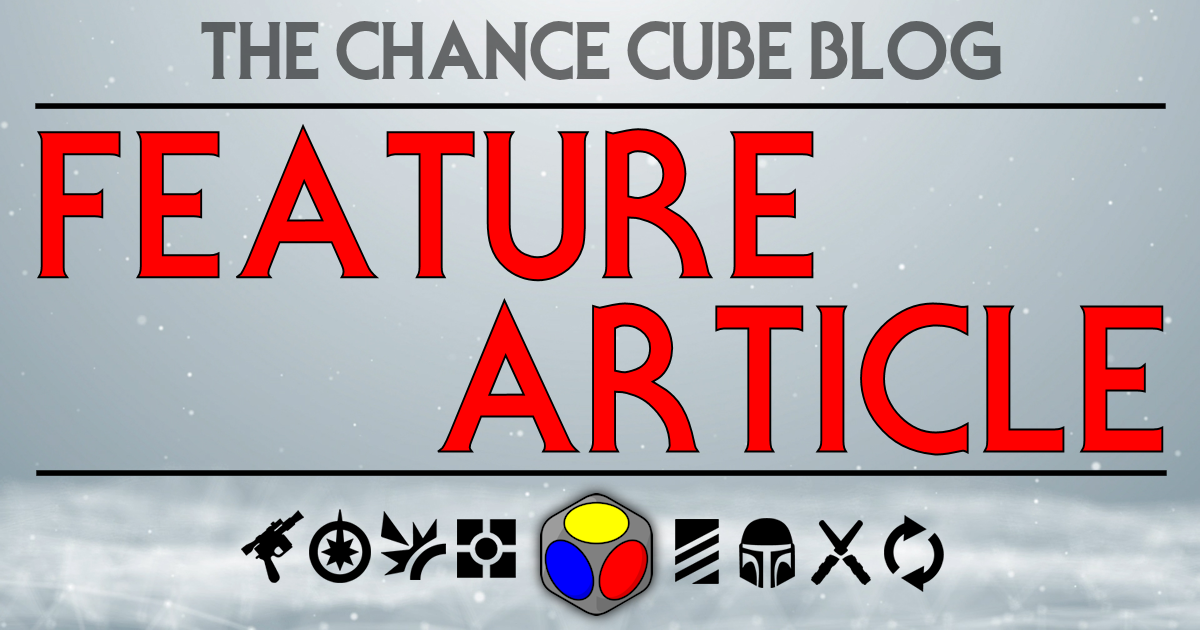Contrary to the popular internet rumor that keeps following me around saying I’m an amazing, high-tier tournament-level tactician (and crazy good-looking to boot), I don’t have a ton of hyper-competitive experience–on purpose, in most cases. That doesn’t mean I don’t like to compete, just that I don’t take it too seriously. It also means that Star Wars: Destiny is one of the very few games I’ve given a lot of effort into being better at, and as such I’m learning many things that might be second nature to many others. While I typically try to write about things besides the actual gameplay (I leave that to the more knowledgeable bloggers here), I figured there are probably quite a few people that are in a similar situation and could benefit from some of my early lessons. With that in mind, allow me to pass on what I’ve learned about one of the most important decisions you can make: the mulligan.
The first real choice you have every game can set the tone for how you play your entire match, and that’s the option to redraw all or a portion of your opening hand. Let’s say you’ve been through the Beginner’s Guide to Destiny, which you definitely should, and have a deck that you want to try. While the finer points of deck concepts and “what a deck wants to do” can sometimes escape me (I want it to do damage and win, of course!), I can usually come up with a couple combos I want to build to, a weakness inherent in my deck that I need to shore up, and what I think needs to happen early to make it happen. Oftentimes it’s tough for me to see that juicy upgrade in my opening hand, like a Mind Probe (AW 60) or a Flame Thrower (AW 24), and not want to keep it. Those are awesome! Imagine the boatloads of damage they’re just waiting to deal! But unless I have a specific plan for them early, they probably need to go back regardless of how much I like them.
See, that was the real lesson I needed to keep in mind: this is my deck and I put all the cards into it; I like all of them. The odds are you’re going to see most of the cards in your deck, so keeping something just because you think it’s a great card is rather silly. Sitting on the resources needed to get something big out early for a couple turns not only slows you down, but can easily blow up in your face if your opponent senses something is up and kindly rids your play area of them. While mid game you can spin wheels building up some resources–and even try to sneak them in at the end of the round–you don’t have the luxury of extra dice and choices at the start of the game. You should have in mind the handful of events, upgrades and supports that in an ideal world you think will best slingshot you into a position of power over your opponent early when building your deck. Think about your first couple turns of limited resources and what you want to have on the board later, even if it’s just a more expensive blaster, and look for the cards you think will make the most of that.
Yes, seeing a Millennium Falcon (AW 49) in your opening hand might get your heart beating, but it does no good sitting there because you can’t afford it or being discarded. Instead, that DH-17 Blaster Pistol (AW 54) that only costs a single resource–leaving you options to play a useful event or get another cheap upgrade out–is a much better option early. If you’re running Sith Holocrons (AW 16), obviously you want to see those as early as possible to have them ready to go. Once I started identifying the cards I felt I would get the most out of for the first couple rounds and started trying my best to begin with them, my games at least started out better.
Do you need to only have your ‘early’ cards in hand when the game begins? Nope; I reserve a hand spot or two if I see something I really like, especially if I have something useful already, but never more than one or two and two is pushing it. Does it always work? Of course not! Sometimes you just draw back the cards you pitched, or get an even worse hand than you started with. However, distancing yourself from your big game-ending plans when you choose what cards to mulligan and simply starting humbly can, in my experience, make a big difference for your game. Start small, and redraw.
Support The Chance Cube
Do you enjoy the content provided by The Chance Cube? Would you like to connect even further with The Chance Cube Family? Consider supporting this content by joining our Patreon. We are a team dedicated to media coverage and community building, committed to bringing you the best of this game, sharing the joy and community that comes with it. Our Patreons enjoy membership in The Chance Cube Hangout, our Facebook group for supporters of the channel, and we have additional tiers that include gifts from us to you as a thanks for the generous support. Find out more at patreon.com/thechancecube.
